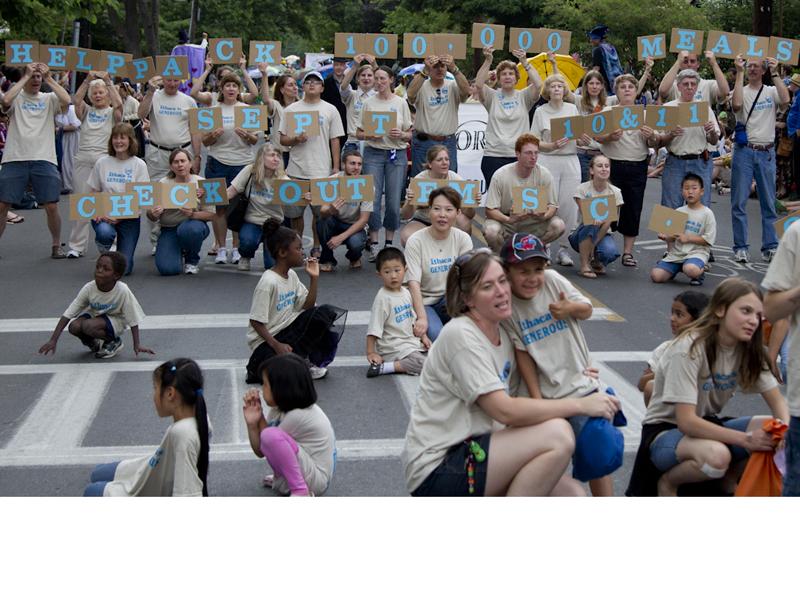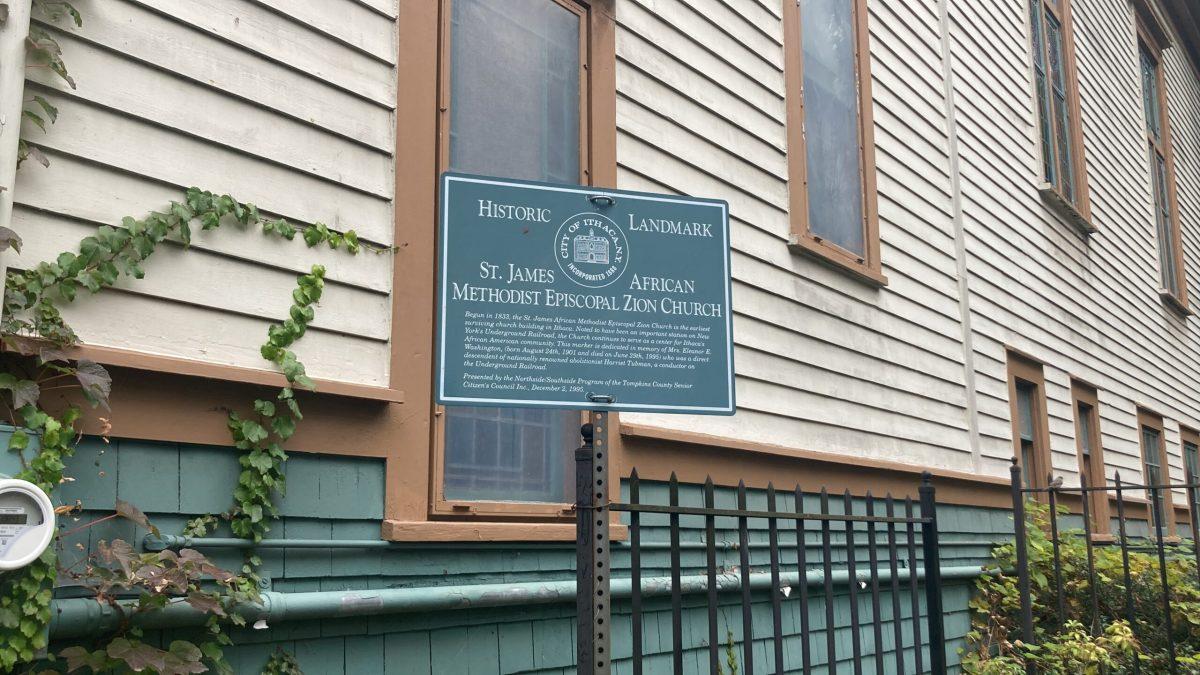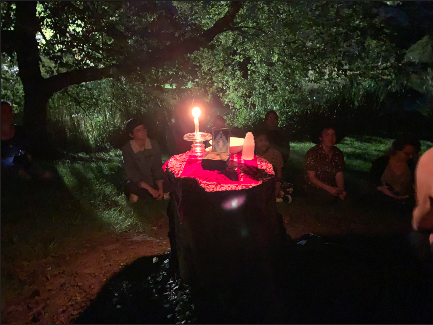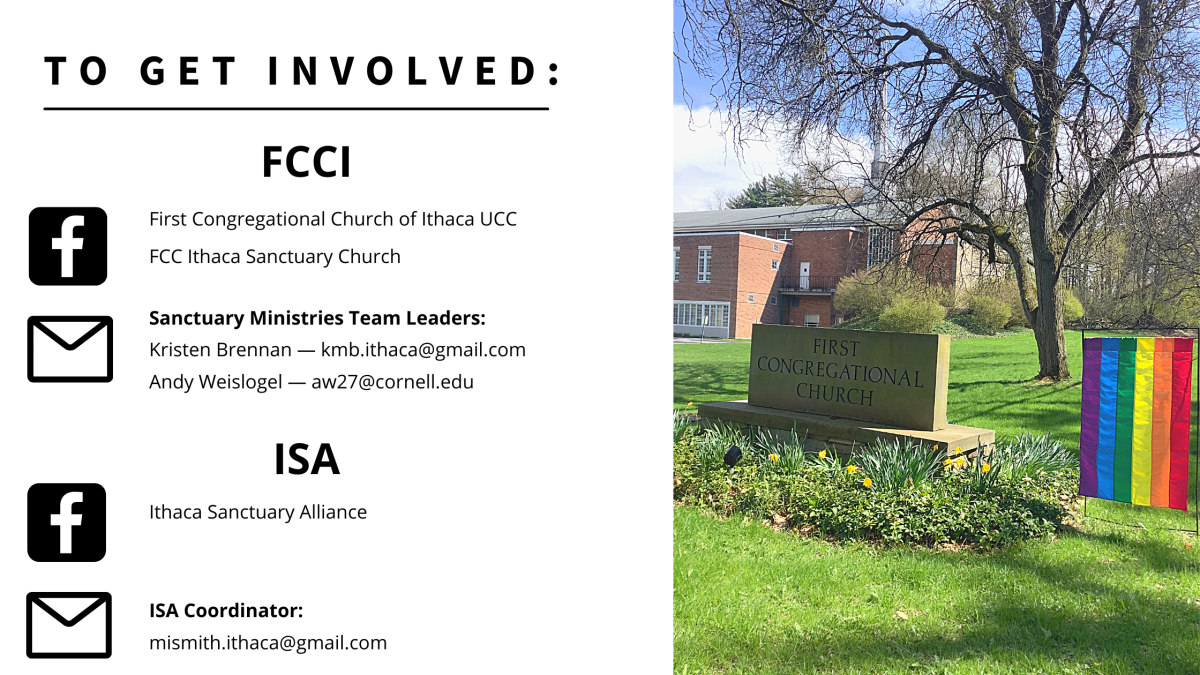Sheri Johnson, a law professor at Cornell University, began the Ithaca chapter in 2008. She and Pastor Robert Foote, Cornell’s Chaplain and Trinity Lutheran Church’s pastor, asked Regenstein to be part of a group to Halal certify the meals.
“I was in Minneapolis (the organization’s main base) and met with the executive director of FMSC and explained why I was uncomfortable with the product not being Halal certified [because] they were going into a number of Muslim countries,” Regenstein said.
Halal food must be free of swine products, alcohol, intoxicants, carnivorous animals and animals improperly slaughtered.
Regenstein worked with the Islamic Food and Nutrition Council of America, the largest Muslim certifying agency, to expedite matters and worked with staff members to compile material required for the application.
The annual turnover of the growing global Halal market in 2010 was estimated at $640 billion, just in food products and over 3 trillion total consumables according to the site, and the IFNCA will hold its 15th annual International Halal Food Conference from April 6-8 in Rosemont, Illinois.
“Because of the unique aspects of what [FMSC] is doing, it took longer than any of us would like, [but] it turned out the product was Halal,” Regenstein said. “It met all the regulations.”
The certification will not directly affect the number of people receiving food; it ensures FMSC upholds the religious regulations and builds their integrity, Regenstein affirmed.
Now Ithaca’s FMSC branch is hoping to localize their efforts since they’ve had such success abroad, said Pastor Robert Foote.
In Tompkins County, fourteen percent of residents request emergency food; 4,418,338 pounds of food is required to meet their need, though only 1 million was distributed in 2011 as shown in the Food Bank of the Southern Tier’s 2011 statistics.
“We’re trying to do what our niche is, which is to pack food internationally, and at the same time address local hunger issues,” Foote said. “The people who are involved in the pack, everybody’s concerned not only about the starving children in Guatemala…but they’re almost always concerned about the local hunger issues.”
FMSC is financed by local donations and receives mini-grants from organizations like Area Congregations Together, a multi-faith association that nurtures local initiatives.
In the last three years, the number of people seeking emergency food has continually risen. Around 500-600 people visit Ithaca Kitchen Cupboard (a local food pantry in Salvation Army on Albany Street) a month or 15-25 families daily said Cora Yao, chairwoman of the board of directors of ACT.
“Since the economic downturn in 2008, we’ve seen on average a 30 percent increase in the number of people coming to food pantries and emergency food programs,” said Natasha Thompson President and CEO of the Food Bank of the Southern Tier (an organization that provides food pantries to Broome, Chemung, Schuyler, Steuben, Tioga and Tompkins county with goods for distribution).
Nearly 22 percent of the 86,481 residents live below the poverty level and eight percent receive food stamps in Tompkins County according to the 2011 Food Bank of the Southern Tier.
Hunger is more prevalent during holidays and summer months when children are not receiving free or reduced school meals, Thompson said.
Ithacans tend to see hunger as an international problem, but it’s prevalent throughout the city, she asserts.
“Some of our involvement that’s been on the national scene needs to come back to Ithaca for the time being because of the need here right now,” Yao said.







